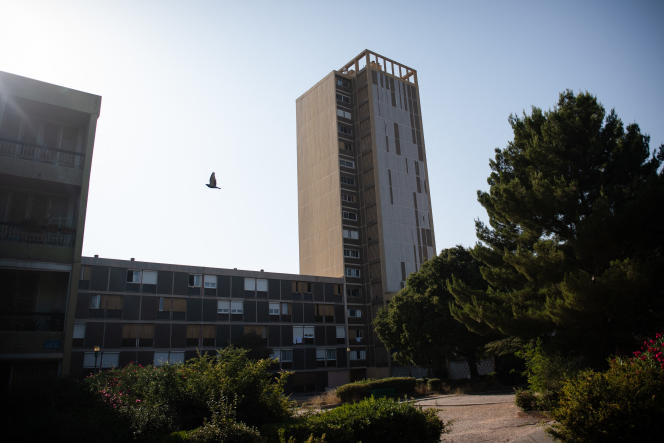One of the main drivers of social housing production in France is experiencing a severe downturn: the urban municipalities which do not reach the rate of 20% to 25% of social housing imposed on them by the Solidarity and Urban Renewal Act (SRU) have not caught up as much as expected over the past three years. Among these 1,105 municipalities with deficits, 700 to 800 did not meet the targets set for them, compared to 550 during the previous period. Only 70% of the overall objective has been reached, whereas it had been exceeded during the years 2017 to 2019, reveals the Ministry of Housing to the World.
The decline in approvals to create HLM housing, observed at national level, was even more marked in municipalities already in deficit. “These accounted for 60% of social housing production during the previous period. This time, they contributed only 45% of the total. So there is a sharp drop in momentum.we analyze at the ministry.
“Building housing is not easy, and building social housing is even less so, regrets the president of the Grenoble metropolis, Christophe Ferrari. There was the health crisis and the municipal elections of 2020, with residents who do not want a new building in front of their homes. The costs of land and construction have increased, social landlords have seen their resources decrease due to State decisions… And since the abolition of the housing tax, there is no longer any financial carrot for the mayors who build, while welcoming residents requires developing facilities. »
“Long term mechanisms”
The city of Marseilles has been notified by the prefect that around 2,900 social housing units have been approved over the past three years, ie around 38% of the 7,600 planned. The deputy mayor for urban planning, Mathilde Chaboche, was forced to resign. His colleague in charge of housing policy, Patrick Amico, points to the same obstacles as Christophe Ferrari, and adds that the left-wing coalition of which he is a part was only elected in 2020: “The time of real estate is not the time of politics. We cannot invent building land at the right price in two or three years if nothing has been done before. These are long-term mechanisms. »
Emmanuelle Cosse, president of the Union sociale pour l’habitat, which federates social housing organisations, describes a contrasting situation: on the one hand, “mayors get elected by committing not to respect the law, or claim that there is no land available while continuing to issue building permits to the private sector” ; the other, “municipalities like Paris, which are already very well built, have managed to catch up, thanks to their financial choices, the purchase of existing buildings…”. According to this former housing minister of François Hollande, the dropout observed is explained by a lesser involvement of the State: “Between 2015 and 2017, there was an interministerial delegate for social diversity in housing, who was going to announce to the mayors the sale of public land. Since the election of Emmanuel Macron, a distance has been created, the positive trend has withered. The application of the SRU law works if the government mobilizes the prefects, if there are sanctions, but also means to support the mayors. »
You have 35.87% of this article left to read. The following is for subscribers only.
